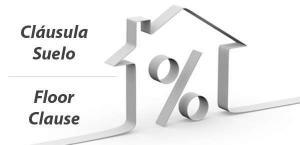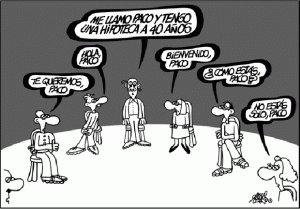FLOOR CLAUSES MORTGAGES: NEGATIVE REPORT FROM CJEU
 In our last article in May, related to floor clauses, we explained that judicial proceedings before the CJEU (Court of Justice of the European Union) are currently taking place.
In our last article in May, related to floor clauses, we explained that judicial proceedings before the CJEU (Court of Justice of the European Union) are currently taking place.
The purpose of these proceedings is to decide whether Spanish banking entities have to return all the money unduly charged through floor clauses or, on the contrary, they only have to return the amounts unduly charged after 9 May 2013.
The preliminary opinion of the advocate general taking part in these proceedings establishes that banks should only have to return the amounts unduly charged after 9 May 2013.
The Judgement in these proceedings is expected for late this year and, even though the opinion of the advocate general is not binding, it is usual for the Court’s Judgement to follow the same reasoning.
Regardless of the surprise that this opinion has caused among many lawyers and judges, we must remember that Spanish banks will have to return the amounts unduly charged after 9 May 2013 through floor clauses, and this will not change, regardless of the Judgment of the CJEU, as these proceedings will only decide whether banks will have to return the amounts unduly charged before 9 May 2013 or only those amounts unduly charged after this date.
It is very important for everyone affected by floor clauses in a mortgage to file a judicial claim to recover the amount the bank has charged unduly, as well as to prevent the bank from continuing to charge them more money than the agreed interest rate for their remaining mortgage periods. The success rate in these proceedings is quite high and banks would be ordered to cover court costs caused by these proceedings.
Currently many banks are trying to prevent customers from initiating judicial proceedings by offering false solutions such as agreeing on a fixed interest rate for mortgages. Don’t sign or agree to anything without talking to a specialised lawyer as most of these solutions only seek to keep the bank from having to pay you everything it owes you and make you waive your right to file a judicial claim.
Thanks to our agreement with the Gallego & Rivas law firm, which specialises in banking law, we can study your case at no cost, completing an initial assessment of your documentation and giving you an estimate of the total amount of money you could claim, as well as the money you would save in the future by eliminating the floor clause from your mortgage. This is all with no commitment to hire our legal services.
If you are interested in getting this consultation free of charge, the way to proceed is to contact us at info@cdsolicitors.com, giving us your contact details and sending us a copy of your Mortgage Deed as well as the latest invoice for your mortgage loans. We will be happy to help you and clarify your legal status.
Author: Gustavo Calero Monereo, C&D Solicitors (Lawyers)






